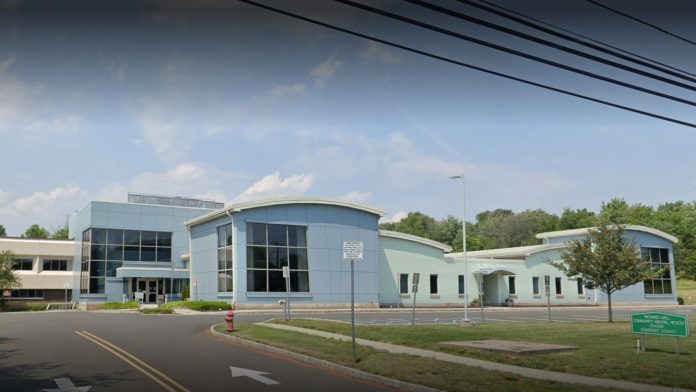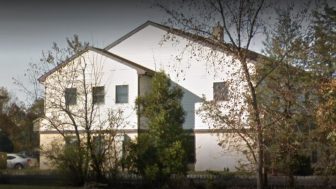Richard Hall
500 N Bridge St
Bridgewater, NJ 08807

About Richard Hall
Serving the community of Bridgewater, New Jersey, Richard Hall Community Health Center has a range of outpatient services for mental health and substance abuse issues. They offer individual and group therapy, addiction recovery groups, and medication management. A co-occurring disorder program called CARE is available for individuals struggling with mental health issues, substance abuse, and relationship issues. Reach for Recovery is another co-occurring outpatient program that provides medication assisted treatment.
Reach for Recovery is a fully integrated community focused on helping people with substance use disorder achieve long term recovery. It includes equine assisted therapy, peer support and one on one sessions with a peer recovery specialist. They also offer 24 hour on call service and sober holidays and events.
The CARE program focuses on self determination and growth. It includes an individualized treatment plan and group and individual therapy. You can expect to engage in art, personal skills development, and stress management. The intensive outpatient level includes nine hours of treatment per week. The outpatient level may include one to two hours a week of therapy in addition to medication management.
Richard Hall also offers acute psychiatric care to individuals at risk of hospitalization. Medication management is used as an intervention when applicable and will be monitored going forward.
People who’ve used the services at Richard Hall Community Mental Health Center say they received excellent service. They also said the staff is friendly and well educated. Another person said they’ve been attending groups here for three years and have learned many new coping skills.
Amenities
Private drug rehab provides a comfortable, secure environment that allows you to focus on doing the work to get your life back on track. Benefits include a higher staff-to-client ratio, increased one-on-one time with therapists and healthcare providers, private rooms for clients, and customized forms of therapy.
In order to maintain a sense of autonomy, many private rehab facilities offer clients the ability to choose their own private rooms. The privacy and personal space ensure that the recovery process is as comfortable as possible.
Addiction Treatment Programs
There are many benefits to a young adult program in New Jersey. These programs offer a more comfortable environment that helps young adults feel more at home. The peer support provided also helps participants develop healthy relationships for mutual support.
An adult program in New Jersey can take place in different settings. Individuals seeking treatment for addiction can choose from inpatient, outpatient, and sober living homes, which provide treatment at different levels of intensity.
Gender-specific rehab programs offer a solution to the ways that addiction can affect men and women differently. Men’s rehab in New Jersey focuses on treatments that are most beneficial for men.
Women’s rehab in New Jersey is ideal for women who are uncomfortable in a co-ed treatment environment. Women’s rehab provides a safe and caring setting where they can focus on their treatment and connect with other women who understand.
During cognitive behavioral therapy in New Jersey, participants develop and learn to implement healthy coping skills. The focus of this psychotherapy method is to change negative thought patterns to positively affect behaviors.
For older adults, elderly rehab in New Jersey provides addiction treatment tailored to their needs. These substance abuse programs offer staff who are experienced with age-related issues and can provide safe, relevant treatment.
Women’s rehab in New Jersey is ideal for women who are uncomfortable in a co-ed treatment environment. Women’s rehab provides a safe and caring setting where they can focus on their treatment and connect with other women who understand.
Veteran’s rehab in New Jersey addresses common challenges of military personnel who are facing addiction. Treatment may include medications, training in how to handle relapse triggers, development of coping skills, and connections to support groups.
Through the use of rational emotive behavioral therapy in New Jersey, addiction counselors can help individuals improve their emotional wellness, strengthen their relationships with others, and reduce the severity and frequency of negative emotions. These benefits help decrease substance use and encourage recovery.
To help you achieve long-term recovery, alcohol rehab in New Jersey addresses addiction issues from medical and psychological viewpoints. By treating the whole person, these programs give you the tools you need to achieve and maintain sobriety.
At opioid rehab in New Jersey, patients receive individualized treatment that is adjusted to meet their needs as they progress toward recovery. Addiction specialists partner with each individual to tailor their treatment to address specific challenges that contribute to their addiction.
Levels of Care
New Jersey outpatient therapy offers a next-step after inpatient treatment. This flexible program is tailored to meet each person’s recovery needs as they step back into life. It includes regular sessions with a counselor and support group, for accountability and continued relapse prevention.
New Jersey aftercare rehab services help those in recovery adapt to their new, sober lives. This begins after initial rehab treatment ends and can last for up to a year or more. Typical services include support groups, counseling, life coaching, and financial guidance.
When you check into New Jersey Drug Rehab, your first step toward recovery will be detox. This supervised period, which may last up to a week, purges all toxic substances from your body.
If you have a co-occurring mental health disorder and substance abuse disorder, both must be treated in order for you to recover. Dual diagnosis treatment in New Jersey specializes in this approach. Specialists in both fields will provide the tools and resources you need for recovery.



